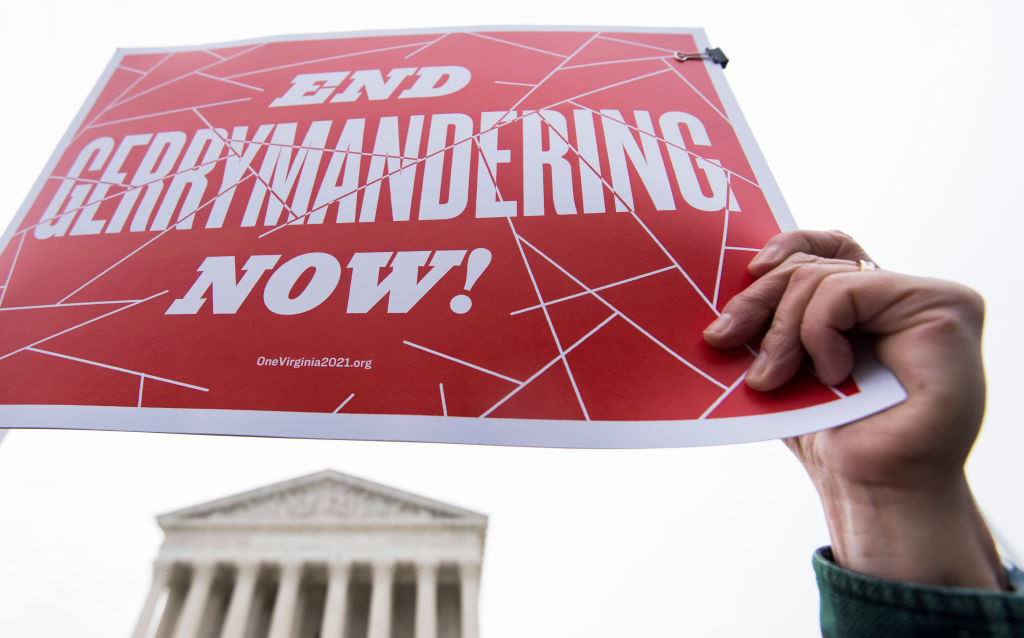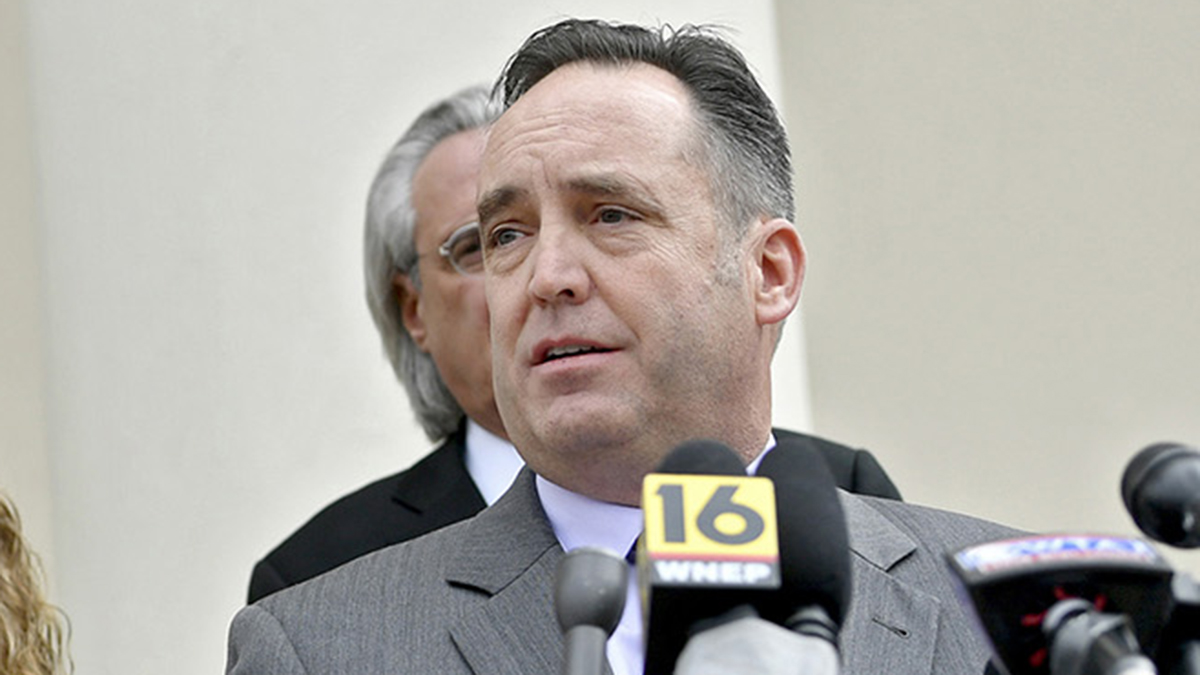Incumbent State Sen. Larry Farnese, who represents a large part of Philadelphia has lost the primary election to Nikil Saval, a South Philly writer and community organizer, the Associated Press projects.
Meanwhile, Sen. Daylin Leach, who represents parts of Delaware and Montgomery counties, is trailing by more than 2,000 votes to challenger Amanda Cappelletti, with 72% of precincts reporting Wednesday morning.
These are the latest twists in a strange primary election in which a curfew enforced in Philadelphia has delayed in tallying election results. In a few local primary races for the state House, incumbents faced tight races, with outcomes uncertain for at least the next 24 to 48 hours.
Tuesday night, some Philadelphia poll workers worried about repercussions of running into police on the way home. All residents were ordered home by 8:30 on Tuesday by Mayor Jim Kenney. Polling places closed a half hour earlier.
"I assume we'll have delays with getting some results due to street closures and possible issues with poll workers leaving without closing the machines properly due to fears of curfew," a city elections official said Tuesday night.
Votes are still being tallied in the state's 2020 presidential primary election. In expected outcomes, the Associated Press declared Joe Biden and Donald Trump winners of the Democratic and Republican presidential primaries, respectively.
NBC10's Election Results page will have updating vote tallies as they come in.
Decision 2020
The latest news on the 2020 presidential election
The primary this year included contested races for Congress, the Pennsylvania House and some state senate races. Local referendums are also on some local ballots, including two questions for voters in Philadelphia. As of Wednesday afternoon, votes tallied were strongly "yes" compared to "no" for both questions. The first question asked voters if Philadelphia should form a permanent Department of Labor. The second question asked voters if city workers could be allowed to donate their off-hours volunteering for state and national political campaigns.
The only local incumbent member of congress to face a primary challenge was U.S. Rep. Brian Fitzpatrick, a Republican who represents Bucks County. He held a nearly 7,000-vote lead over challenger Andy Meehan.
In races for the Pennsylvania General Assembly, three Democratic incumbents, Brian Sims, Maria Donatucci, and Jeremy Roebuck were all trailing challengers as of 5 p.m.
The curfew added to a myriad of issues complicating the vote count for officials in Philadelphia and other parts of Pennsylvania wracked by the COVID-19 pandemic, mass protests and voting machines being used for only the second time.
This is also the state's first election allowing mail-in ballots, and the coronavirus outbreak led to an overwhelming amount of requests for mail-ins. Nearly 1.8 million voters asked for them.
In addition to the curfew delay concern raised by another elections official, City Commissioner Al Schmidt said the vote counting also involves police officers, who are very busy dealing with civil unrest.
"Machines are still new, so it’ll take the poll workers longer to close the polls. The polling places are consolidated, so the ballots and USBs won’t leave until they’re all ready," Schmidt said of the paper ballots and accompanying electronic votes captured on portable hard drives. "The police are the ones who pick up the ballots and USBs, and bring them back to us."
Democrats and Republicans also picked which presidential candidate -- among those remaining in race -- to nominate for the November general election. As expected, Joe Biden won the Democratic race and Donald Trump won the Republican race, according to the Associated Press.
Pennsylvania holds closed primaries, meaning independent voters can only vote for referendums. Voters registered with political parties can vote for candidates running for those parties' nominations.
Lines at some polling places grew to be blocks and hours long as some voting precincts combined because of lack of resources and volunteers due to the coronavirus pandemic.
Patricia McHenry waited for two hours to cast her ballot Tuesday afternoon at a polling place in the East Falls section of Philadelphia.
She said the scene was chaotic, with election workers still getting used to voting machines being used for only the second time and 10 voting precincts converging on one polling place because of lack of volunteers.
"They combined 10 polling places and when I asked why they said they were short on resources," McHenry, a nurse, said. "And with the COVID-19, they felt they didn’t have proper resources at all the polling places and many volunteers didn’t come in because they were older."
Some people with whom McHenry stood in line said they took two buses to get to the Falls of Schuylkill Library branch where the polling place was.
"People said, 'My apartment building is where my polling place is normally so I just have to go downstairs,'" she said. "People stood in line for 2 hours and I think that says a lot about where we are right now."
Photos: Voters Brave Pandemic, Protests on Unusual Election Day
NBC10's Election Results page will have updating vote tallies as they come in.
Voters dealt with extra precautions because of the COVID-19 pandemic. Some in places like Philadelphia also waded out into the middle of civil unrest has led to days of protests. Nearly 700 arrests have been logged in Philadelphia since Saturday.
“If you look at all we are tied up with -- a pandemic, a depression, a civil unrest, an election -- there is only so much energy and resources that we have,” Mayor Jim Kenney said Monday.
Then there are those mail-in ballots. This is the first election in Pennsylvania that allows for the mail-in option, and people have taken advantage -- to the tune of more than 1.8 million ballots.
That number is about seven times the amount Pennsylvania officials expected last year when they approved mail-in ballots. Amid the pandemic and the unrest over police brutality and inequality, Gov. Tom Wolf decided to allow seven of the state's 67 counties to have an extra seven days to count all the mail-in votes. Those counties include Philadelphia, Delaware and Montgomery.
Voters who have received their mail-in ballots still had to submit them by 8 p.m. on Election Day. The Associated Press, which calculates winners in most election races, said Tuesday night that, because of the high number of mail-in and absentee ballots, tallies would likely continue into next week.
It all adds up to an unpredictable outcome for contested races. Pennsylvania's pre-eminent pollster, Terry Madonna of Franklin & Marshall College, said Tuesday afternoon that in-person turnout appeared light.
As he alluded to, the mail-in results of millions of Pennsylvanians won't be immediately known Tuesday night after polls close.
Earlier on Tuesday morning, hours before McHenry, the nurse from East Falls, waited in line from 1 to 3 p.m., Philadelphia City Commissioner Al Schmidt said election workers were still getting comfortable with all the variables in play.




